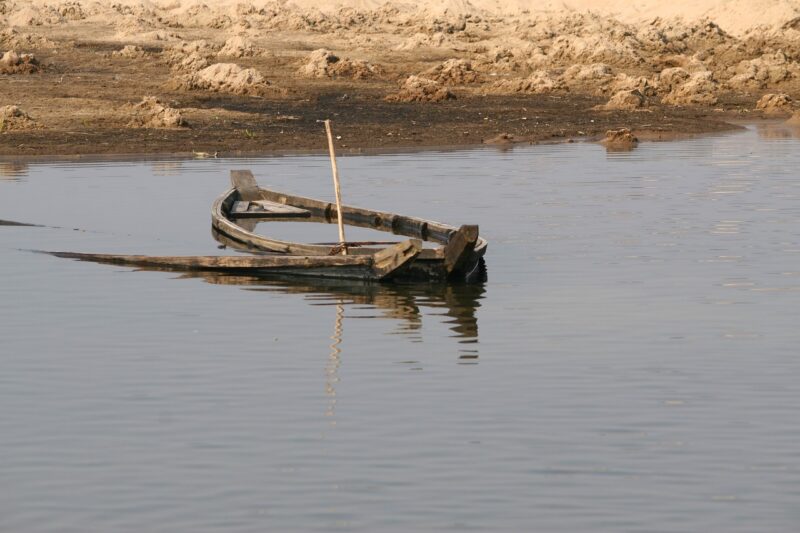
The outbreak of World War I in 1914 set the stage for one of the most significant maritime tragedies in history—the sinking of the RMS Lusitania. On May 7, 1915, this British ocean liner was torpedoed by a German U-boat off the coast of Ireland, resulting in the loss of 1,198 lives, including 128 Americans. The event not only marked a turning point in maritime warfare but also played a crucial role in shifting American public sentiment towards entering the war.
—
### 1. The Context of World War I
As Europe plunged into conflict in 1914, the United States adopted an official stance of neutrality. The American public largely supported this position, driven by a desire to avoid entanglement in foreign wars and a commitment to isolationism. However, the war had economic implications, leading American businesses to forge closer ties with the Allies, primarily Britain and France.
By 1915, the United States had become one of the most significant suppliers of war materials to the Allies, with American banks providing substantial loans to support their efforts. This economic relationship complicated the neutrality stance, as American interests were increasingly at stake.
—
### 2. The Lusitania: A Symbol of Luxury and Safety
The RMS Lusitania was one of the largest and fastest ocean liners at the time, boasting luxurious accommodations and a high-profile clientele. It was celebrated for its speed and safety, making it a symbol of technological advancement. On its final voyage from New York to Liverpool, the Lusitania carried about 1,959 passengers and crew, including prominent Americans and British citizens.
Despite the ship’s reputation, dangers lurked beneath the surface of the conflict. Amid the ongoing submarine warfare, Germany declared the waters around Britain a war zone and warned that ships sailing there did so at their own risk. The British Admiralty had made efforts to support and protect ships like the Lusitania, but the dangers of U-boat attacks were very real.
—
### 3. The Torpedo Strike: A Day of Infamy
On that fateful day, the Lusitania was sailing off the southern coast of Ireland when, at 2:10 PM local time, a single torpedo fired by the U-20 struck the ship. The impact was catastrophic, damaging the hull and causing a widespread explosion that sealed its fate. Within just 18 minutes, the Lusitania sank to the ocean floor, leading to the largest maritime disaster involving a civilian ship at that time.
Among the dead were women, children, and numerous prominent individuals. Only 764 passengers and crew survived the incident, which sent shockwaves across both sides of the Atlantic.
—
### 4. The Aftermath: American Outrage and Diplomatic Tensions
The sinking of the Lusitania ignited outrage across the United States. The American public was horrified by the loss of civilian lives, particularly those of fellow Americans. In the aftermath, many newspapers carried front-page stories condemning Germany’s actions, with headlines that fueled anti-German sentiment.
President Woodrow Wilson, while attempting to maintain neutrality, faced mounting pressure to respond to this atrocity. The U.S. government issued strong protests to Germany, demanding accountability and restitution for the victims. The German government, recognizing the impact of its actions, publicly expressed regret but stood firm on its wartime policies.
—
### 5. Shifting Public Opinion and Political Pressure
Despite maintaining a façade of neutrality, the sinking of the Lusitania sparked a significant shift in public opinion. The idea of unrestricted submarine warfare, combined with the high civilian death toll, greatly influenced many Americans’ attitudes toward the war.
Public figures, including politicians and influential writers, began advocating for American involvement in the war effort. Organizations like the Preparedness Movement took shape, calling for increased military readiness in case the U.S. were to join the Allies.
—
### 6. The Road to War: A Combination of Factors
While the Lusitania incident was not the sole reason for America’s entry into World War I, it served as a catalyst in a process that had already begun. The factors leading to U.S. involvement were complex, including:
– **Unrestricted Submarine Warfare:** Germany’s resumption of unrestricted submarine warfare in 1917 was a direct challenge to American maritime rights, leading to further tensions.
– **Economic Interests:** The U.S. economy was heavily tied to the success of the Allies, and many in the business community believed that entering the war was essential for ensuring the repayment of loans.
– **The Zimmerman Telegram:** In early 1917, British intelligence intercepted and revealed a secret message from Germany to Mexico, proposing a military alliance against the United States. This further inflamed public sentiment against Germany.
Ultimately, President Wilson asked Congress to declare war on April 2, 1917, framing the conflict as a fight for democracy and a response to German aggression.
—
### 7. Lasting Impact on Maritime Law and International Relations
The sinking of the Lusitania not only influenced American public opinion but also had a lasting impact on maritime law and international relations. In the aftermath, discussions surrounding the protection of civilian vessels and the principles of neutral shipping became central topics in international law discussions.
The rights of neutral nations soon became more defined, ultimately leading to the establishment of protocols aimed at protecting civilian lives during armed conflict.
—
### Conclusion
The sinking of the RMS Lusitania was a pivotal moment in history that signified the profound consequences of warfare on innocent lives. It not only opened the eyes of the American public to the realities of World War I but also shifted the sentiment toward eventual involvement in the conflict. The tragedy of the Lusitania serves as a reminder of the delicate balance between neutrality and the obligations of nations in times of war, a lesson that continues to resonate in modern geopolitics.







